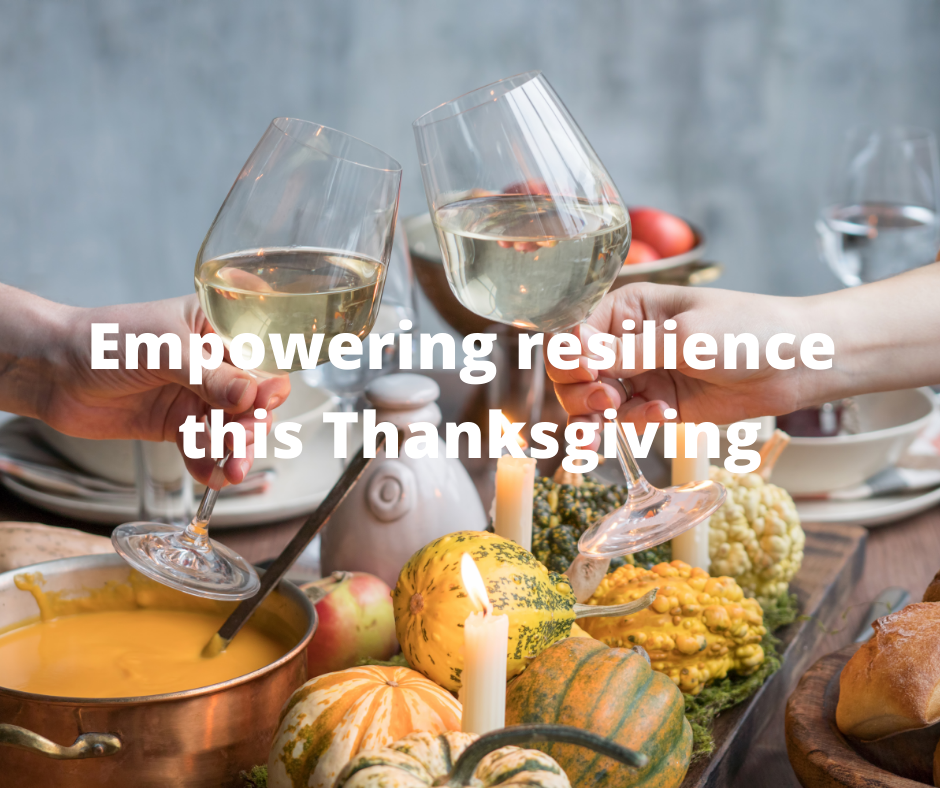This is a year to forget. In 2020, we have witnessed more Americans die from the pandemic than many of our wars combined, more unemployment than the Great Depression, social and racial unrest with severely divided politics that we have not seen since 1968. However, on this Thanksgiving, we have the power to be grateful and to create an ecosystem for resilience.
These times require finding the common threads that bind us together at work and among our families and communities. Finding what binds us together requires the information, time, and space to be resilient.
The last place I expected to find excellent research on resilience was at the HR Technology Conference in October, which was held virtually due to the pandemic for the first time in its history. This conference is the summit for the $400 billion HR technology industry to strut its stuff for purchase and investors to eye-ball the startups. While the emerging HR technologies unimpressed me (they did not seem so different from last year), I was impressed with the presentation by Marcus Buckingham on resilience.
Marcus Buckingham is the co-founder of StrengthFinders and New York Times best selling author.
Buckingham and his team at the ADP Research Institute surveyed more than 26,000 employees in 25 companies to develop a statistically reliable, global measure of resiliency, equally represented by men and women. He thought going into the survey that countries with high COVID19 cases and death would be the most resilient. He found he was wrong.
Instead, Buckingham discovered it is experiences and an ecosystem that enables resilience. At work, the ecosystem comprises the following: individuals, team leaders, and senior leaders. Let me explain.
First for individuals. Individuals need to know what they can control and cannot control and focus on what they can. They should also try to find strength in work. If they can, they will be more resilient.
Second for team leaders. Team leaders need to check in frequently with each employee every week to see how they are doing. Buckingham recommends they ask two questions: What are you working on this week? How can I help you? Team leaders also have the ability to tell employees what they need to know for any crisis in the near team. The more they do this, the more resilient their workers will be.
Third, for senior leaders. The need to stay one step ahead of events. Buckingham means events in the near future, such as around the corner, not next year. Such concerns may include work employees need to do, information relating to customers the company will continue to serve, and details about the small steps they can take to continue the business. He emphasizes that senior leaders should not sugar coat bad news. Speak to reality, what they know. Senior leaders need to follow through on what they say they will do and build trust with employees. Learn more.
I want to thank our front line workers for their courage, dedication, and sacrifice during this year: the doctors, nurses, emergency responders, restaurant staff, and workers at grocery stores, delivery services, food processing, and supply chain workers. We all hope 2021 will help turn the tide from this challenging year, with promising vaccines for the pandemic becoming available, the promise of continued economic recovery, and less inflammatory public discourse without an election.
But during a calamity, even working remotely, under the threat of disease, and missing our friends and family, we have the power this Thanksgiving to create our own ecosystem of individuals, teams, and senior leaders (and among our families and friends) to be resilient.
Have a safe and Happy Thanksgiving. Empower resilience.
Victor Assad is the CEO of Victor Assad Strategic Human Resources Consulting, managing partner of InnovationOne, and Sales Advisor to MeBeBot. He works with companies to develop extraordinary leaders, teams, and innovation cultures. He is the author of the highly acclaimed book, Hack Recruiting: the Best of Empirical Research, Method and Process, and Digitization.

